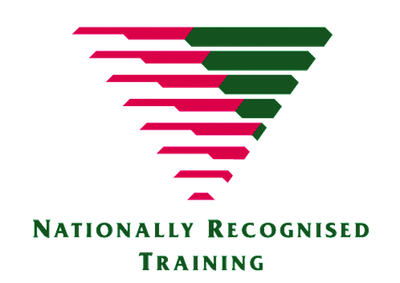Overview
The community services sector offers diverse and meaningful opportunities for you to provide person-centred services. This nationally recognised qualification prepares you for entry-level positions in community services, empowering you to help clients to access essential services. In this course, you will learn how to plan and deliver person-centred services to individuals, groups, and communities, providing support, advocacy, and interventions across various services.
As a community services worker, you can work independently within set guidelines and may supervise others in community service settings. Your role can have a positive impact on individuals and communities in areas such drugs and alcohol treatment, community mental health, domestic violence support, youth work and job network assistance. Through compassionate care and case management expertise, you will make a real difference in the lives of vulnerable and disadvantaged people.
Key Information
| Award | CHC42021 Certificate IV in Community Services |
| Duration | 1 year (52 Weeks) 4 terms x 10 weeks 12 weeks of holidays |
| Study Mode | Classroom, Structured Study (Online), & Self-directed Learning |
| Locations | Melbourne, Sydney |
| Intakes | January, April, July, October |

The CHC42021 Certificate IV in Community Services is a nationally recognised qualification.
Career Opportunities
Curious about what roles in the industry you can apply for upon completing your CHC42021 Certificate IV in Community Services? Here’s a list of career opportunities:
- Community Services Worker
- Case Worker
- Child, Youth and Family Worker
- Family Support Worker
- Disability Support Worker
- Community Development Worker
- Youth Worker
- Crisis Intervention Worker
- Employment Services Worker
- Education Support Worker
Study Pathways
Completing the CHC42021 Certificate IV in Community Services will open a study pathway into our CHC52021 Diploma of Community Services.

Course Delivery and Assessment
This course is timetabled for 52 weeks, including 40 weeks of training and assessment across 4 terms of 10 weeks, and 12 weeks of holidays. Each week, you are required to complete 20 hours of training and assessment, made up of 14 hours of weekly classroom training and 6 hours of structured study. An additional 10 hours per week of self-direct learning should be set aside for homework. A structured plan for self-directed learning will be provided for a 10-week period that outlines your learning activities in preparation for assessment requirements.
Assessments: Your assessments include short answer questions, case studies, presentations, role plays and practical demonstrations in a simulated environment, and projects.
Training: Training takes place on campus. Delivery methods include trainer presentations and demonstrations, individual tasks, case studies, research, role plays, practical demonstrations, and group work.
Units of Competency
The course is made up of 15 units of competencies, made up of 7 core and 8 elective units.
CHCADV001 Facilitate the interests and rights of clients
CHCDFV001 Recognise and respond appropriately to domestic and family violence
CHCCOM002 Use communication to build relationships
CHCDIV001 Work with diverse people
CHCLEG001 Work legally and ethically
CHCPRP001 Develop and maintain networks and collaborative partnerships
HLTWHS002 Follow safe work practices for client care
CHCCCS010 Maintain high standard of service
CHCCCS014 Provide brief interventions
CHCCCS006 Facilitate individual service planning and delivery
CHCADV002 Provide advocacy and representation services
CHCAOD001 Work in an alcohol and other drugs context
CHCINM002 Meet community information needs
CHCMHS001 Work with people with mental health issues
HLTAID011 Provide first aid

Course Requirements and Suitability
Entry Requirements
Study Requirements
Entry Recommendations
You must meet both the academic and English language requirements.
Academic Requirements
- Completion of at least the equivalent of Australian Year 10,
- Be at least 18 years of age.
English Language Requirements
You must meet one of the following criteria:
- IELTS score of 5.5 (or equivalent), with no individual band score below 5.0; or
- ALG in-house English proficiency test that is equivalent to IELTS 5.5; or
- A Certificate IV level qualification (or higher) completed within the Australian Qualifications Framework (AQF) in Australia within 2 years before starting this course; or
- Completion of the Senior Secondary Certificate of Education in Australia and in the English language within 2 years before starting this course.
You must also complete the Language, Literacy and Numeracy (LLN) online test as per ALG’s Language, Literacy and Numeracy Requirements Factsheet
Please note: If you are applying for more than one course at ALG, you will only need to complete the LLN online test once. However, students returning to studies at ALG after a significant period of time may be asked to complete the LLN online test.
For more details about the English Language Entry Requirements, please refer to the ALG English Proficiency Requirements Factsheet.
Bring your own device: Please bring your own laptop or tablet device to theory classes as ALG does not provide these items. Refer to the BYOD Policy in the ALG Student Handbook for specific details.
- Strong communication skills are essential for interacting with clients, patients and colleagues.
- Teamwork and collaboration skills
- Cultural sensitivity: Understanding and respecting diverse cultures is important for working with a variety of clients.
- Patience and empathy: Understanding and responding to the needs of others is fundamental to this role.



